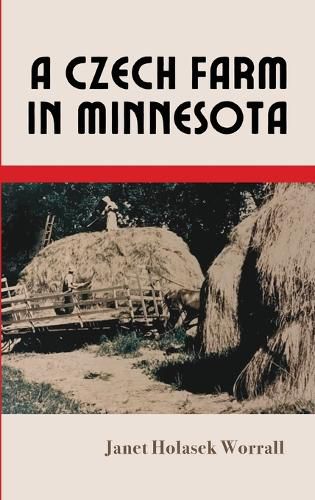Readings Newsletter
Become a Readings Member to make your shopping experience even easier.
Sign in or sign up for free!
You’re not far away from qualifying for FREE standard shipping within Australia
You’ve qualified for FREE standard shipping within Australia
The cart is loading…






This title is printed to order. This book may have been self-published. If so, we cannot guarantee the quality of the content. In the main most books will have gone through the editing process however some may not. We therefore suggest that you be aware of this before ordering this book. If in doubt check either the author or publisher’s details as we are unable to accept any returns unless they are faulty. Please contact us if you have any questions.
In this historical memoir, Janet Holasek Worrall traces several generations of her ancestors leaving Bohemia in the 1850s and settling on farmland in Minnesota. It details daily life from the mid-1920s to the 1960s on Richard and Evelyn Holasek's farm, where the author and her sister Dorothy grew up. For decades, the Holaseks made a living having dairy cows, growing strawberries and raspberries, and raising chickens for eggs. In addition to being a wife and a mother, Evelyn worked side by side with her husband, pitching hay, husking corn, picking berries, and tending her large vegetable garden.
Gradually the Holasek farm lost out to an interstate highway and encroaching housing developments. What had been an agricultural community became a suburb of the Twin Cities. What had been a family farm was replaced with a health club.
While the Holasek farm is now erased from the physical landscape, Janet Holasek Worrall documents its place in history for future generations. She draws upon personal letters, diaries, newspaper articles, official documents, and her mother's records. Enriched with numerous photos, A Czech Farm in Minnesota is a compelling historical exploration of immigration, women, agriculture, and family.
"This insightful account is part of the mosaic of history that adds to our understanding of our immigrant past [and] adds a dash of color to the literature." -David G. McComb, Emeritus Professor, Colorado State University
$9.00 standard shipping within Australia
FREE standard shipping within Australia for orders over $100.00
Express & International shipping calculated at checkout
This title is printed to order. This book may have been self-published. If so, we cannot guarantee the quality of the content. In the main most books will have gone through the editing process however some may not. We therefore suggest that you be aware of this before ordering this book. If in doubt check either the author or publisher’s details as we are unable to accept any returns unless they are faulty. Please contact us if you have any questions.
In this historical memoir, Janet Holasek Worrall traces several generations of her ancestors leaving Bohemia in the 1850s and settling on farmland in Minnesota. It details daily life from the mid-1920s to the 1960s on Richard and Evelyn Holasek's farm, where the author and her sister Dorothy grew up. For decades, the Holaseks made a living having dairy cows, growing strawberries and raspberries, and raising chickens for eggs. In addition to being a wife and a mother, Evelyn worked side by side with her husband, pitching hay, husking corn, picking berries, and tending her large vegetable garden.
Gradually the Holasek farm lost out to an interstate highway and encroaching housing developments. What had been an agricultural community became a suburb of the Twin Cities. What had been a family farm was replaced with a health club.
While the Holasek farm is now erased from the physical landscape, Janet Holasek Worrall documents its place in history for future generations. She draws upon personal letters, diaries, newspaper articles, official documents, and her mother's records. Enriched with numerous photos, A Czech Farm in Minnesota is a compelling historical exploration of immigration, women, agriculture, and family.
"This insightful account is part of the mosaic of history that adds to our understanding of our immigrant past [and] adds a dash of color to the literature." -David G. McComb, Emeritus Professor, Colorado State University